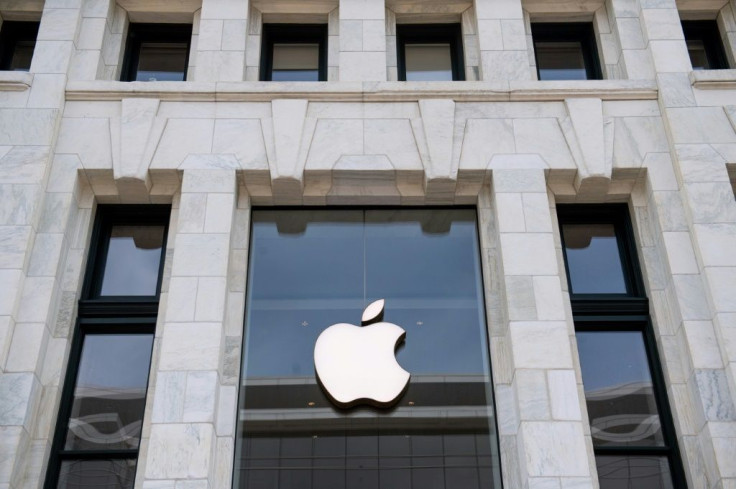Epic Battle: Why Epic Games Is Taking On Apple And Google
KEY POINTS
- After effectively having "Fortnite" pulled from the App Store and Google Play Store, Epic Games has thrown down the gauntlet to battle the giants
- Epic Games' lawsuits argue that the policies of Apple and Google are not just anti-competitive, they’re in violation of antitrust laws
- If Epic wins, it will make it clear that Apple’s and Google’s practices are illegal, and then those companies will be forced to change their practices
In the wake of last week’s epic clash between “Fortnite” developer Epic Games and monoliths Apple and Google, one has to wonder what made Epic Games want to provoke the ire of the latter two companies.
There is no doubt that the overwhelming success and popularity of “Fortnite” gave Epic Games considerable sway, but to actually undercut the middleman that Google and Apple effectively were in the game by offering a discounted price for V-Bucks was gutsy, to say the least.
As a quick recap, on Thursday morning, Epic Games updated Fortnite with a new option for payment processing, providing a discounted price for players who choose to process payments through Epic Games, not Apple or Google.
Epic Games thus circumvented the Apple storefront’s 30% cut on purchases by giving players a 20% discount on V-Bucks, Fortnite’s in-game currency. In response, both Apple and Google removed Fortnite from the App Store and the Google Play Store, respectively, citing policy violations.
Yet it seemed that Epic Games was prepared for this eventuality all along. Mere moments after “Fortnite” was removed from the App Store, Epic Games began its #FreeFortnite campaign, complete with a hashtag, in-game propaganda video, and a pair of lawsuits.
The lawsuits argue that the policies of Apple and Google are not just anti-competitive, they’re in violation of antitrust laws.
Epic Games CEO Tim Sweeney said on Twitter that his company is not looking for special treatment; it wants Apple and Google to change its rules and create truly “open platforms” to benefit “all developers,” not just Epic. “It’ll be a hell of a fight!” Sweeney said.
Today, Apple said Epic is seeking a special deal, but that's not true. We're fighting for open platforms and policy changes equally benefiting all developers. And it'll be a hell of a fight! https://t.co/R5A48InGTg
— Tim Sweeney (@TimSweeneyEpic) August 14, 2020
Although Epic Games has clashed with companies like Sony and Nintendo in the past over cross-platform play, this battle is different. Even though Epic Games is valued at over $17 billion, they are definitely the underdog against two giants.
“Epic is going at the heart of the App Store monopoly, as well as Google’s comparable monopoly over the sale of Android apps,” Sandeep Vaheesan, legal director at anti-monopoly research and advocacy group Open Markets Institute, told Polygon.
“It’s challenging the practices by which [Apple and Google] acquired this dominant position and tried to leverage this dominant position into new markets. This is a major lawsuit,” he added.
Epic Games is not asking the court to rewrite antitrust law as it stands — instead, it’s asking a judge to just enforce the law as it exists. If Epic wins, it will make it clear that Apple’s and Google’s practices are illegal, and then those companies will be forced to change their practices.
The core of the lawsuit seems to stem from Google and Apple having large monopolies over certain markets. Valarie Williams, an antitrust lawyer and partner at Alston & Bird, told Polygon that Epic Games’ basic allegation comes down to whether or not Apple (and, subsequently, Google) has a monopoly through its App Store.
For Epic to succeed in its lawsuits, it has to prove the market exists — and that the companies have monopolies over them.
She pointed to another restriction, the “tying” arrangement, that Epic Games said is violating antitrust laws. “[Apple] is saying that if you’re going to use the App Store, then you have to use our payment processing service; you can’t use your own,” Williams said. If you don’t want to do that, then you can’t use the App Store — and that’s why “Fortnite” was removed.
“It’s not a problem to be a monopoly,” Williams said. “It’s not a problem under the law to have market power. It’s when you use that to restrain competition.” And Epic Games has alleged that that’s exactly what the restrictions do, at least in the case of Apple — you can’t just move to a different app store on iOS, because Apple doesn’t permit them to exist.
Experts warn against expecting a quick resolution though. Vaheesan pointed to a class-action lawsuit against Apple’s App Store practices that have been in the courts for a decade.
Regardless of the outcome, this battle playing before our eyes will likely change industry practices regarding app purchase exclusivity.

© Copyright IBTimes 2024. All rights reserved.



















